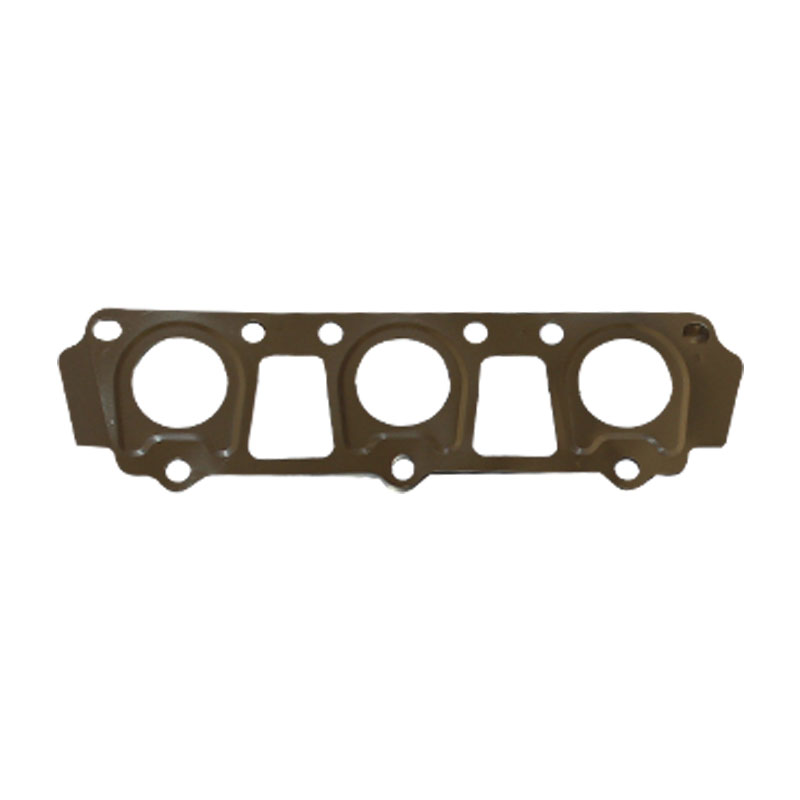oil pan bolt gasket
Understanding Oil Pan Bolt Gaskets Importance and Maintenance
The oil pan serves as a crucial component of an engine's lubrication system, housing the oil that lubricates various engine components. The oil pan bolt gasket plays a vital role in ensuring a secure seal between the oil pan and the engine block, preventing oil leaks and maintaining optimal engine performance. This article delves into the importance of oil pan bolt gaskets, their maintenance, and the signs of potential issues.
The Role of Oil Pan Bolt Gaskets
Oil pan bolt gaskets are designed to create a tight seal, preventing oil from leaking out of the oil pan. This seal is critical because any oil loss can lead to lower oil levels, which may compromise engine lubrication. Insufficient lubrication can result in increased friction among engine components, leading to overheating, increased wear, and potential engine failure.
The material of the gasket can vary, with common types including cork, rubber, and silicone. Each material has its own properties, including temperature resistance, flexibility, and durability, which can affect the lifespan and effectiveness of the gasket. It's important to select the correct type of gasket based on the engine's requirements and operating conditions.
Signs of a Failing Gasket
Over time, oil pan bolt gaskets can degrade due to exposure to heat, oil, and various engine conditions. Drivers should be aware of the common signs of a failing gasket, as early detection can save costly repairs.
One of the first indicators is the presence of oil leaks. If you notice oil puddles under your vehicle or oily residue along the seams of the oil pan, it may be a signal that the gasket is failing. Additionally, you may observe a drop in engine oil levels, which can be identified during routine checks.
Another sign to watch for is the presence of a burnt oil smell. As oil leaks onto the hot engine components, it can burn and produce a distinct odor. This not only indicates a potential leak but may also pose a fire risk, making timely attention paramount.
oil pan bolt gasket

Maintenance Tips
To extend the lifespan of an oil pan bolt gasket and ensure your engine runs smoothly, regular maintenance is essential. Here are several best practices
1. Regular Oil Changes Frequent oil changes not only keep the engine oil clean but also help maintain the integrity of the oil pan gasket. Old, dirty oil can cause the gasket material to deteriorate more quickly.
2. Proper Torque Specifications When installing or re-installing an oil pan, ensure that the bolts are tightened to the manufacturer’s specified torque. Over-tightening can lead to gasket deformation or cracking, while under-tightening can result in leaks.
3. Visual Inspections Regularly check for any signs of leaks or unusual oil spots under the vehicle. Periodic inspections, especially after long drives or heavy usage, can help catch potential issues early.
4. Gasket Replacement When replacing an oil pan bolt gasket, consider using high-quality parts. If you notice that your gasket has failed, it's advisable to replace it promptly and ensure that the mating surfaces are clean and smooth for optimal sealing.
Conclusion
The oil pan bolt gasket plays a critical role in maintaining engine health and performance. Understanding its purpose, recognizing the signs of failure, and adhering to maintenance practices can help prevent significant engine issues. By taking care of the oil pan and its components, drivers can enjoy a smoother, more reliable ride. Remember, an ounce of prevention is worth a pound of cure—prioritize your engine's lubrication systems and extend the life of your vehicle.
-
Simplifying Oil Changes: A Comprehensive Guide to Oil Drain Plugs and Their Variants
News Aug.04,2025
-
Mastering Oil Drain Maintenance: Solutions for Stripped, Worn, and Upgraded Oil Plugs
News Aug.04,2025
-
Fixing Oil Pan Plug Issues: Leaks, Stripped Nuts, and the Right Replacement Solutions
News Aug.04,2025
-
Everything You Need to Know About Oil Drain Plugs: Sizes, Fixes, and Upgrades
News Aug.04,2025
-
Choosing the Right Oil Drain Plug: A Guide to Sizes, Materials, and Drain Innovations
News Aug.04,2025
-
A Complete Guide to Automotive Drain Plugs: Types, Problems, and Innovative Solutions
News Aug.04,2025
-
The Ultimate Guide to Car Repair Kits: Tools and Essentials Every Driver Should Own
News Aug.01,2025
Products categories















